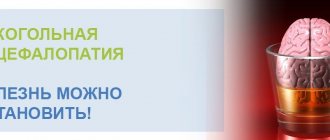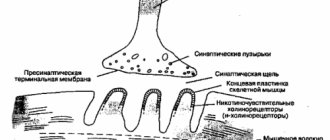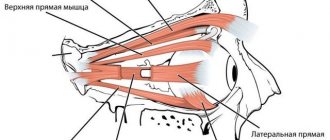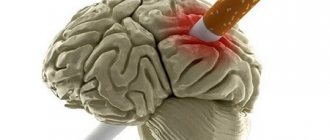Aphasia is a condition in which a person has speech impairments. Pathology occurs when areas of the brain responsible for speech are damaged.
Acoustic-mnestic aphasia is a phenomenon in which auditory-verbal memory is defective. In this case, it becomes difficult for a person to repeat a verbal chain, and it is difficult to select the appropriate words when communicating.
The disease can be diagnosed through a series of tests. To correct speech function, you will need to eliminate the root cause of the disease, as well as undergo general rehabilitation.
When the first symptoms of pathology appear, a person should visit a medical specialist in order to be able to diagnose a specific disease.
Characteristic
The peculiarity of acoustic-mnestic aphasia is that a person understands the speech of other people, but cannot adequately perceive long and complex phrases. This is due to the fact that a citizen is not able to remember words spoken just a few minutes ago. It is difficult for a person to carry on a conversation and answer various questions. It may also not be possible to repeat a few words after the doctor.
Such deviations have a direct connection with memory impairments. In most cases, acoustic-mnestic aphasia appears in a person after suffering a stroke or a similar disorder that damages the functioning of the temporal region of the brain. It is worth noting that it is difficult for a person to repeat a chain of spoken words. If you give him 5 names of objects at once, he will be able to reproduce only the first and last. At the same time, he will forget the other names.
With acoustic-mnestic aphasia, it will be difficult for a person to describe what exactly a specific object means. This is explained by the fact that the patient is unable to reproduce a specific image in memory. If we talk about speech, then there may be a rearrangement of words. The structure of sounds in specific names may also be distorted. Let’s say that instead of the word “tree” a person begins to say “devore”. Because of this, communication with other people becomes much more difficult, especially since deviations can be observed not only in individual words, but also in entire phrases.
The patient should understand that even a mild form of acoustic-mnestic aphasia is dangerous, because there is no ability to perceive texts, and the ability to independently express long thoughts is lost. Often a person replaces the correct words in a sentence with phrases that do not fit the meaning. Because of this, even close relatives may no longer understand him.
When it comes to reading and writing, these skills, as a rule, do not deteriorate due to aphasia. In rare cases, a person begins to make minor mistakes, and also misses or replaces words with inappropriate meanings.
Complications
Aphasia interferes with the patient’s normal communication with others, depriving him of the ability to fully read, write, and perform arithmetic operations. These changes adversely affect the quality of life and the level of social adaptation. Patients are frustrated by their inability to accurately convey their thoughts to others. There are also concerns about concomitant neurological disorders in the motor sphere and disability. On this basis, the development of neurotic disorders (hypochondria, depression) and the accentuation of negative character traits are possible. The situation is aggravated if acoustic-mnestic aphasia is mistaken by doctors and loved ones for a cognitive disorder. The lack of specialized treatment leads to persistent speech dysfunction.
Causes
Mnestic aphasia is a serious disorder that appears due to various diseases. When diagnosing, the doctor must determine what in a particular situation led to the occurrence of memory and speech disorders. We can identify a number of most likely causes that can provoke the appearance of an unpleasant disease.
Possible provoking factors:
- Stroke. During it, an acute disturbance of blood flow occurs or a hemorrhage occurs in the brain. The function of the organ is significantly affected, which is why the person faces complications. Even with timely treatment, the patient begins to suffer from the negative consequences of the disease. For example, with an ischemic stroke, aphasia appears due to the fact that there was a lack of blood supply and oxygen starvation of a certain cerebral cortex occurred. If the patient had to deal with a hemorrhagic stroke, then the disorders appeared due to compression of the temporal lobe by the gushing blood.
- Intracerebral tumors. Neoplasms in the temporal regions lead to speech disorders. As tumors grow, they can exert a compressive effect on the cerebral structures and the vessels that feed them. As a result, a person cannot fully remember words that were recently spoken.
- Traumatic brain injuries. A fairly common cause that leads to mnestic aphasia. This may be a bruise, the appearance of an intracerebral hematoma, which leads to the death of neurons responsible for auditory-verbal memory. The pathological zone grows due to the fact that the inflammatory process begins and swelling appears after injury. The condition requires immediate examination and treatment, because extremely negative consequences for a person can occur, including death.
- Infectious and inflammatory pathologies. They can be diseases such as encephalitis, cerebral abscess and meningitis. In this case, foci of inflammation are located in the brain area responsible for speech. Negative changes are caused by compression, swelling and demetabolism in the affected area. Because of this, apoptosis of nerve cells occurs, leading to disruption of interneuronal connections.
- Progressive degenerative processes. Problems with memory and speech can be caused by Alzheimer's disease, Pick's disease, and Schilder's leukoencephalitis.
Mnestic aphasia will manifest itself with specific symptoms, if detected, a person should consult a doctor. It is important to start treatment in a timely manner so that the progression of the disease can be stopped and speech improved.
In another situation, the disease will progress, due to which the person will have to face significant memory impairment.
Forecast and prevention of the problem
Forecasts for the acoustic-mnestic type of aphasia can be made by knowing the genesis of the disease and taking into account the time when treatment was started.
Often, after strokes, traumatic brain injuries, or encephalitis, people restore speech function. However, this is preceded by a long therapeutic period.
If aphasia remains undiagnosed and is not subject to corrective action, then speech pathology will become persistent. The most unfavorable prognosis is given for aphasia resulting from a tumor or damage to brain structures .
Preventive measures include timely treatment of cerebrovascular diseases, identification of oncological factors, prevention of injuries, and strengthening of the immune system.
The acoustic-mnestic form of aphasic disorder does not always mean a final verdict . If the diagnosis is made correctly and treatment is started in a timely manner, the patient has a high chance of maintaining full-fledged activity.
Main symptoms of the disease
People should know exactly how mnestic aphasia manifests itself. Of course, each case is individual, so it is impossible to say for sure which symptoms will affect a particular person. In this case, it is possible to identify a number of signs of the disease that will be observed in patients with mnestic aphasia.
Main symptoms:
- From the perspective of impaired understanding. A person's auditory-verbal memory is significantly impaired, and this deviation is characteristic of various forms of aphasia. In this case, the patient experiences increased speech activity, with the help of which the patient tries to compensate for problems with communication. Quite often the patient does not understand what exactly they are trying to tell him. It can also point to a completely different object than the one in question. The hardest thing for a patient is to maintain communication with several people at once. This is explained by the fact that he does not have the opportunity to follow the thread of the conversation. If a person suffers from acoustic-mnestic aphasia, then it is difficult for him to listen to a lecture, musical compositions, or watch TV shows.
- On the reading and writing side. It is much easier for a person to write a text than to talk. This is due to the fact that there will be more time to find the right words. In this case, writing down phrases from dictation will be much more difficult. This is explained by the fact that a person will not be able to fully retain the spoken phrases in his head. The patient will constantly repeat what he was told. Separately, it is worth noting that in some cases there are difficulties with understanding the text read. This is explained by the fact that it consists of long sentences that cannot be retained in memory. In any case, it is much more difficult for a person to maintain a conversation, while writing and reading are easier.
- From the side of expressive speech. With mnestic aphasia, it is difficult for a person to pronounce expressive speech, because it is difficult to select the appropriate words. Because of this, phrases have a pronounced predicative character. It is difficult for a person to describe what he sees in the picture. When speaking long sentences, the patient often replaces nouns with pronouns.
In general, only a doctor can definitely say what type of disease you are dealing with. To do this, the patient will have to undergo diagnostics, based on the results of which a diagnosis will be made. You should not expect the speech disorder to go away on its own. Without treatment, it can lead to various negative consequences, in particular, speech function will be significantly impaired.
Pathogenesis
Speech articulation and phonemic hearing are normal. The pathogenetic basis of this speech disorder is a violation of auditory-verbal memory. According to assumptions, patients have increased inhibition of auditory-verbal traces. Clinically, this is expressed by forgetting previously heard words when perceiving new ones. Another pathogenetic aspect of this pathology is the limited volume of auditory-verbal memory. The defect negatively affects the ability to write, count, and read.
In most cases, damage to the posterior temporal areas (field 37) is accompanied by a disruption of their connection with nearby optical-gnostic structures of the occipital lobe. As a result, difficulties arise in the relationship between the verbal designation of an object and its visual image, and the semantic side of speech suffers. The consequence is clinically observed difficulties in perceiving what is said and difficulties in selecting the necessary words in expressive speech.
Diagnostic methods
With acoustic-mnestic aphasia, you will need to undergo diagnostics in order to confirm the specific disease. A person will need to consult with different specialists: a neurologist, neuropsychologist, psychiatrist, speech therapist and aphasiologist. You will definitely need to find out what exactly led to the speech impairment. Moreover, during treatment it will be necessary to eliminate the root cause in order to normalize your well-being.
A person will need a number of examinations:
- Neurological examination. A focal deficit may be detected in the patient’s neurological status: pathology of the cranial nerves, spastic hemiparesis. Assessment of cognitive abilities is of great importance. If there are various abnormalities in mental status, then the person will need to consult a psychiatrist.
- MRI of the brain. With its help, it is possible to clarify the morphological substrate of the disease. With the help of the study, it will be possible to detect tumors in the brain, see foci of inflammation, and detect degenerative changes. The images show areas of ischemia, as well as intracranial hematomas. If a person had injuries, then they can also be detected.
- Vascular studies. A medical specialist can refer a person for a duplex scan, angiography, and also an ultrasound scan. Such studies are required when there is suspicion of cerebrovascular pathology. With their help, you can assess the state of blood flow and identify vascular occlusions.
- Speech function examination. It is carried out by a speech therapist and aphasiologist. It will be necessary to identify verbal paraphasia, decreased auditory-verbal memory, dyslexia, and dysgraphia.
- Lumbar puncture. They are taken in a situation where there is a suspicion of a neuroinfection. When conducting laboratory tests, inflammatory changes in the body will be detected, and the type of causative agent of the disease will be determined. You can also detect signs of hemorrhage and look for tumor cells.
Once the diagnosis is confirmed, the doctor will prescribe a treatment regimen that will be suitable for the individual patient. The person will have to follow the doctor's recommendations in order to have the opportunity to improve their condition. Only in this case will it be possible to significantly improve memory and speech function.
Speech restoration in aphasia
Treatment of aphasia necessarily involves influencing the underlying factors, which, depending on the diagnosis, may require the help of a neurologist or neurosurgeon, conservative or surgical treatment. In some cases, aphasia goes away on its own when normal blood flow in the brain tissue is restored, but such a favorable outcome occurs in a small number of victims. Often, correction of aphasia requires a lot of effort on the part of doctors and the patient himself, and a long period of rehabilitation.
In addition, the understanding and help of loved ones is of great importance for correcting speech, who, when communicating with patients, should be guided by the following rules:
- Maintain a calm tone, a normal communication style, speak as equals (not as with a small child or a mentally ill person).
- Speak in simple words, short sentences.
- Do not rush the patient, give him time to formulate his statements.
The following methods can be used for treatment:
- drug therapy;
- speech therapy classes;
- physiotherapy (electromyostimulation, magnetic therapy);
- psychotherapy.
Therapy
To correct a speech defect, a person must eliminate the root cause. That is why the doctor will prescribe treatment to combat the disease that caused the speech disorder. It is possible that surgery will be required if conservative methods do not help get rid of the disease. For example, surgery is necessary for tumors and hematomas.
The doctor will prescribe special medications to the person that will stimulate metabolic processes in the brain. It will be necessary to restore lost neural connections and functions. Vascular medications, nootropic drugs, and neurometabolic medications may be prescribed. To eliminate aphasia, doctors quite often prescribe Memantine.
The person will be referred to classes with a speech therapist, and the doctor’s main task is to expand the volume of operational auditory-verbal memory. It is important to visit a speech therapy office from the first days after the onset of the disease. At first, tasks are performed based on visual perception, then light auditory dictations are carried out. Patients are recommended to memorize poems, songs, and speech sequences.
Aphasia can be: sensorimotor, semantic, motor, general, total and many other types. This disease can even occur in children. Do not ignore symptoms, consult a doctor.
The prognosis largely depends on the cause of the disease, as well as how quickly treatment was started. For this reason, it is difficult to say definitively whether it will be possible to completely restore speech function. If a person does not want to face aphasia, then he needs to treat infectious diseases in a timely manner, as well as prevent stroke. If pathology cannot be avoided, you will need to consult a medical specialist.
How it manifests itself
The amnestic form of aphasia can be quite difficult to recognize and diagnose during the initial examination of the patient. Such people do not have impairments in conversational speech, including spontaneous speech; they construct phrases correctly, without grammatical errors, but their conversation is dominated by verbs and practically no nouns.
The following speech features are also characteristic:
- multiple repetitions of the same words in spontaneous speech;
- difficulty finding the desired name of an object or event;
- replacing a word with a description of its appearance and functions;
- absence of motor disorders (no difficulties with pronouncing sounds), correct articulation;
- maintaining reading and writing skills (correctly names the right word if he sees its graphic representation);
- there is a phenomenon of alienation of the semantic load of a word when it is correctly repeated.
Most often, amnestic aphasia is a symptom of some serious disease or condition, so other neurological manifestations may be present in the clinic, for example, concomitant hemiparesis.
The severity of clinical signs may vary in severity depending on factors such as:
- localization of the lesion and its size;
- cause of the disease (for example, stroke is characterized by more severe speech impairments than vascular thrombosis or atherosclerosis);
- the patient’s age (young people have more opportunities for quick and complete speech restoration);
- the presence of concomitant severe diseases;
- features of the body's compensatory capabilities.
Amnestic aphasia in its pure form is less common than mixed forms, for example, a combination of sensory and motor aphasia against the background of word forgetting in brain tumors or vascular diseases.
Types of violation
There are 4 main types of the disorder, although there are slightly more differences between them. It is worth noting that in some cases the symptoms are very similar and even coincide. This classification is based on which part of the brain and what effects it causes.
So, there are 4 types of aphasia:
- Sensory (occurs when Wernicke's center is damaged). A person hears words and can repeat them, but does not understand their meaning);
- Motor (Broca's center is affected). Pronunciation, grammar of statements suffers, speech is incoherent, it is difficult for a person to switch from one word to another);
- Sensorimotor . Global defeat of both speech centers, a person does not understand the oral speech of others and can say practically nothing himself).
- Amnestic (the parietal-high region is affected). It is difficult to name objects, although the patient understands their meaning and can pronounce this word).










